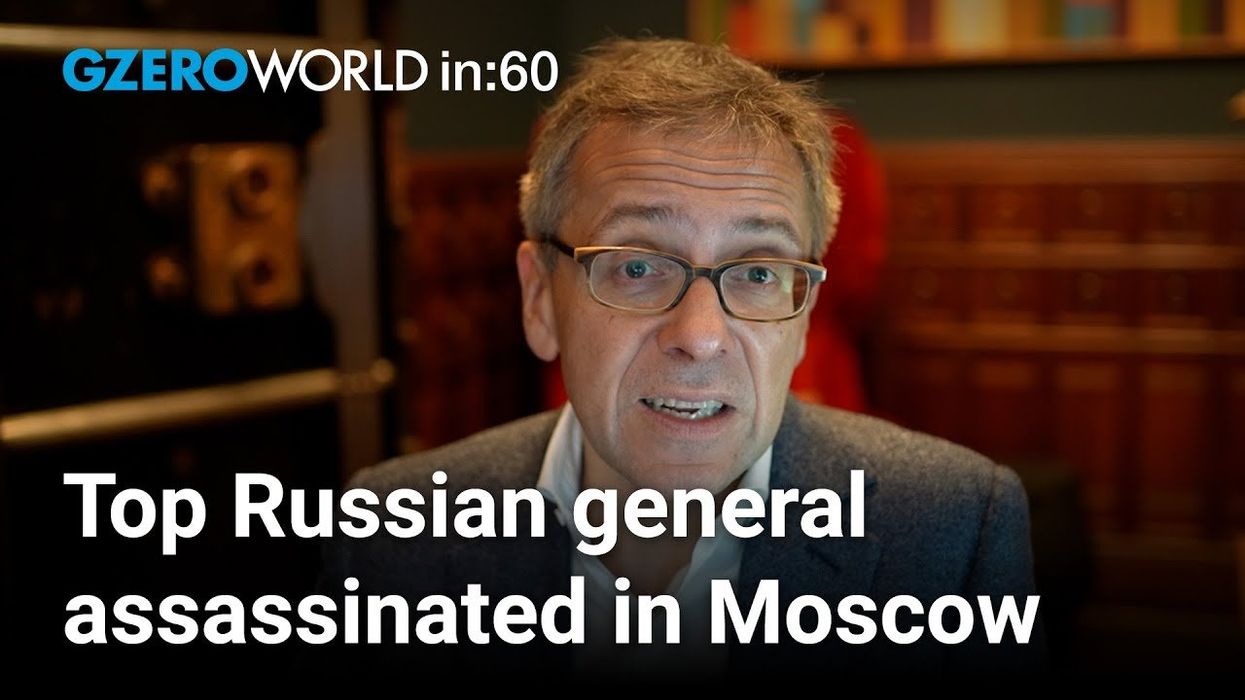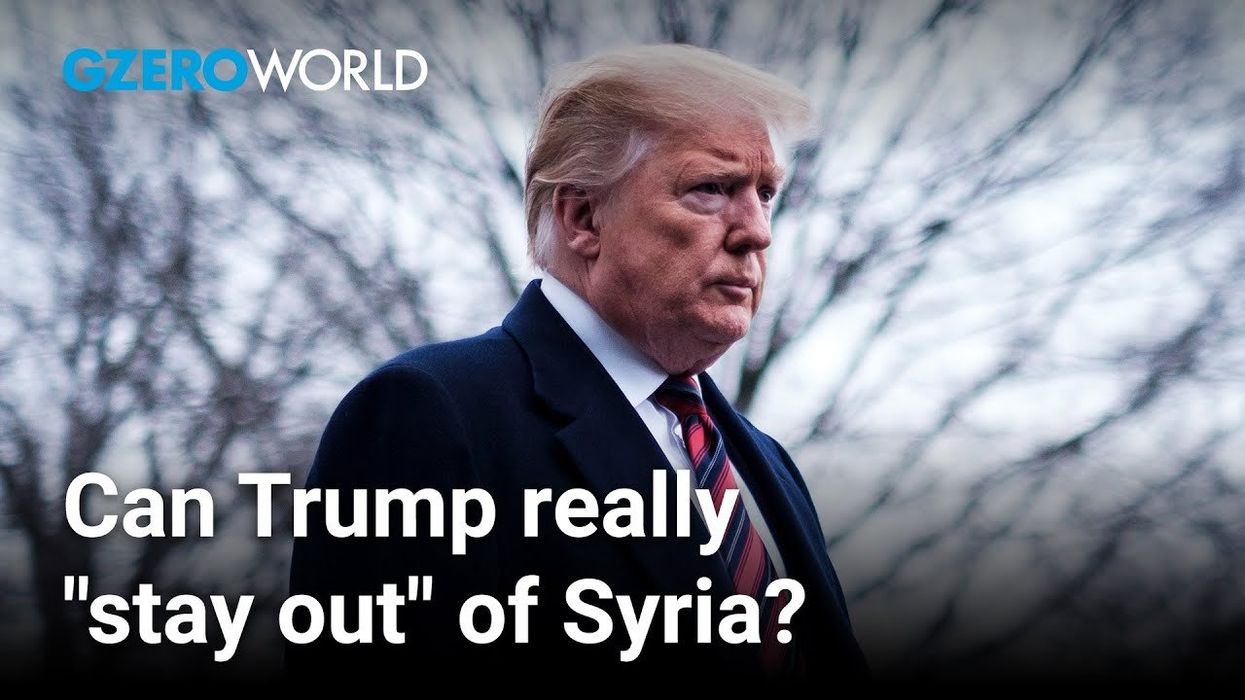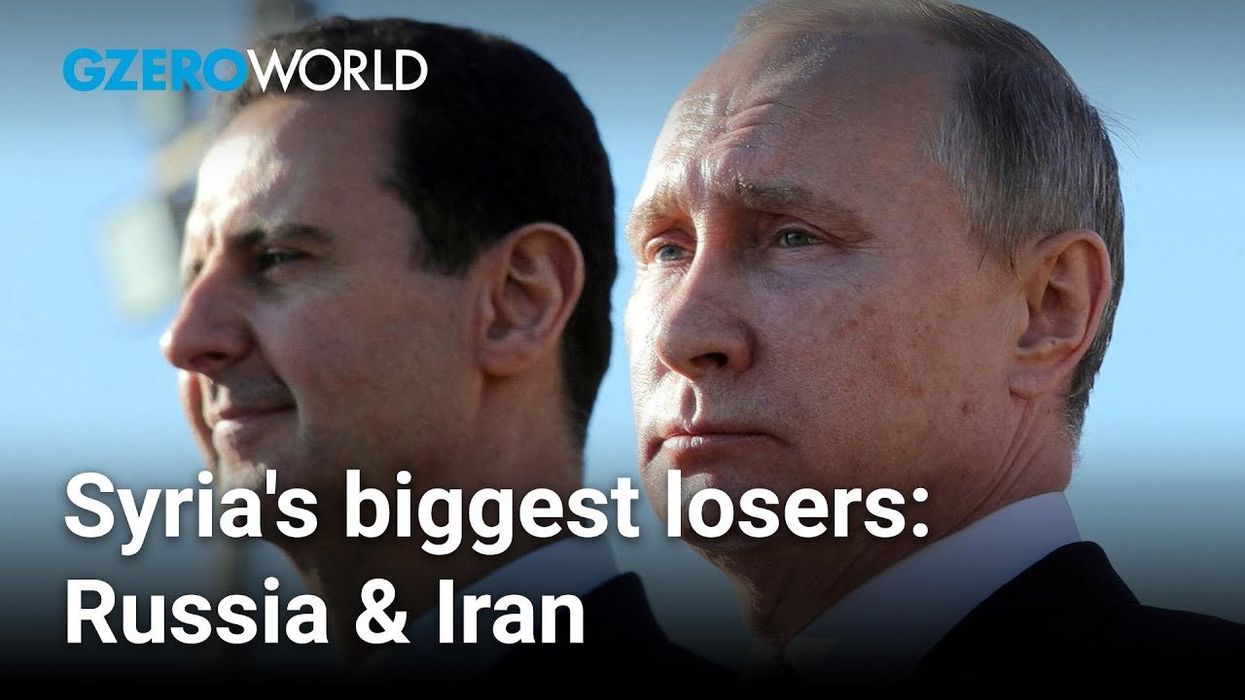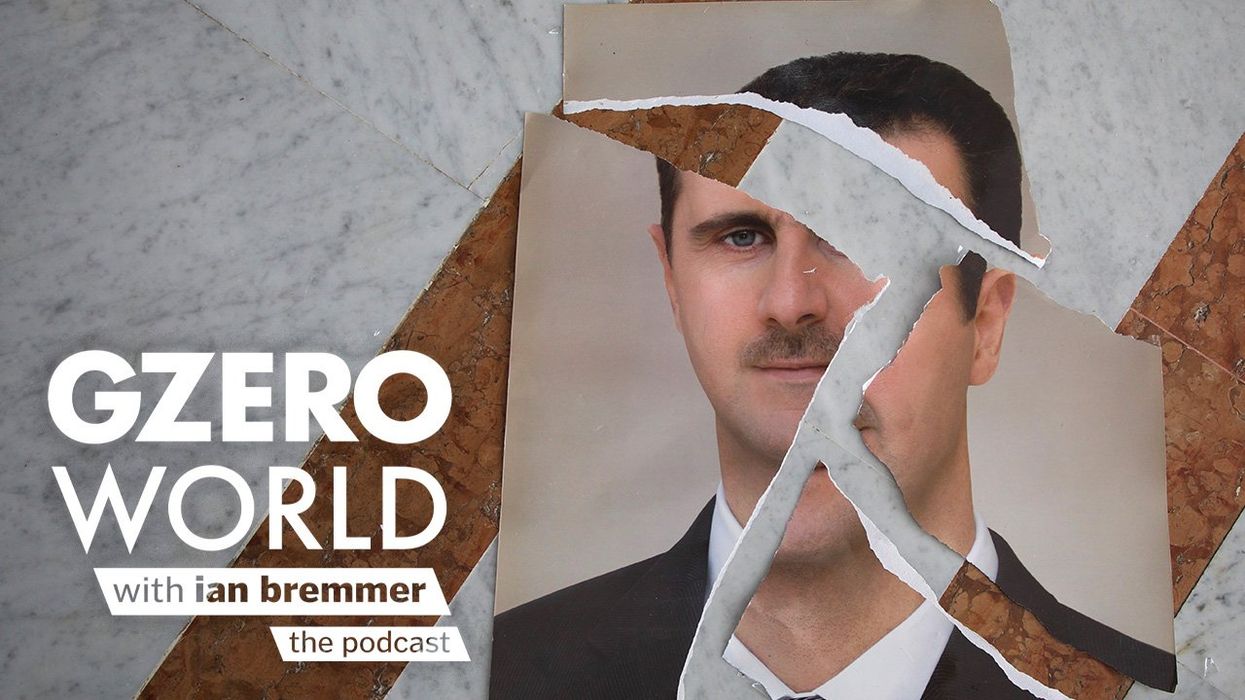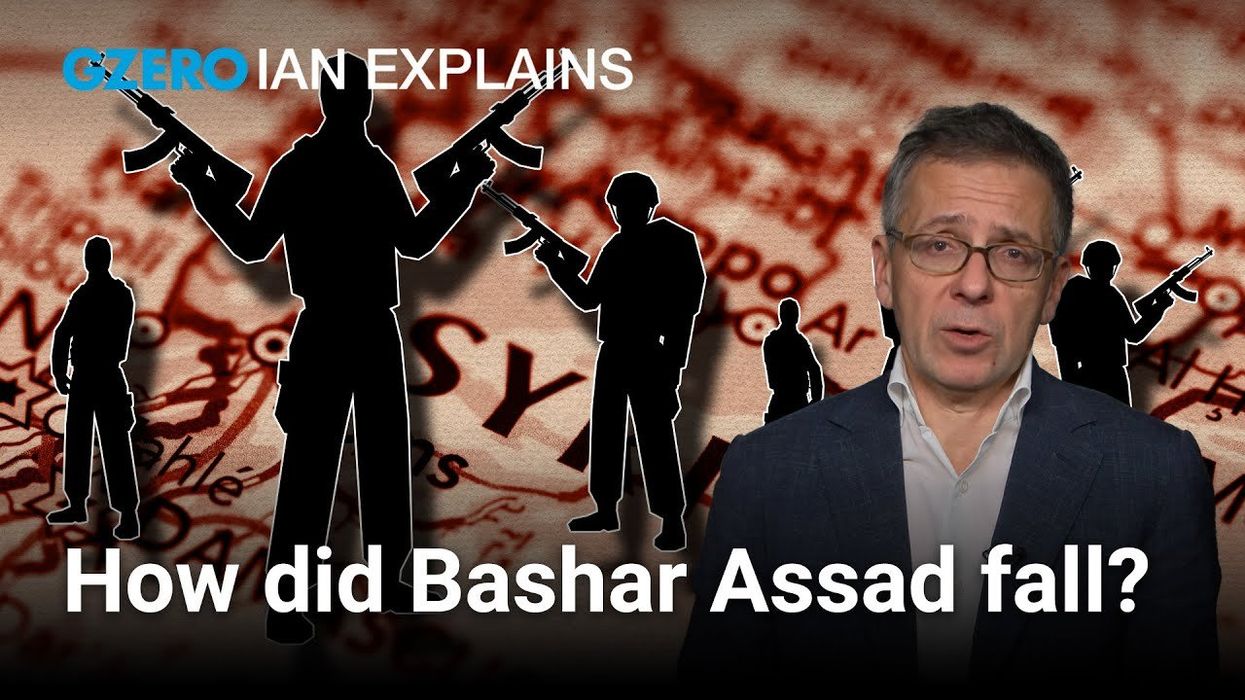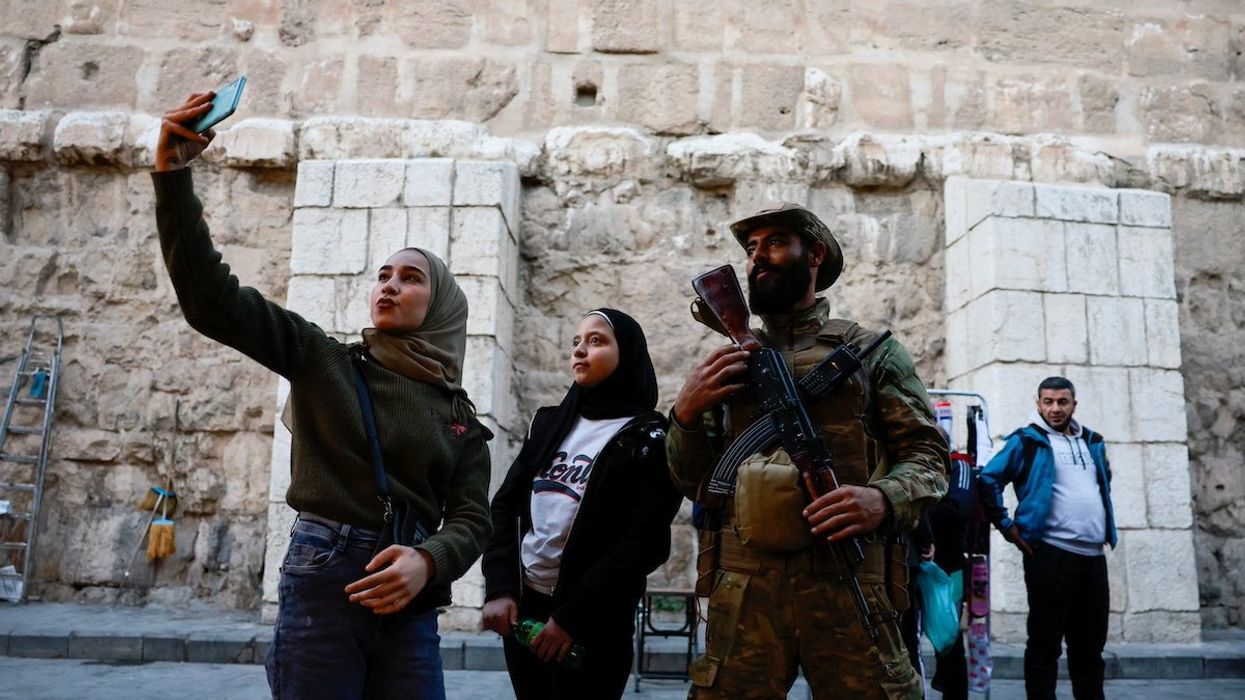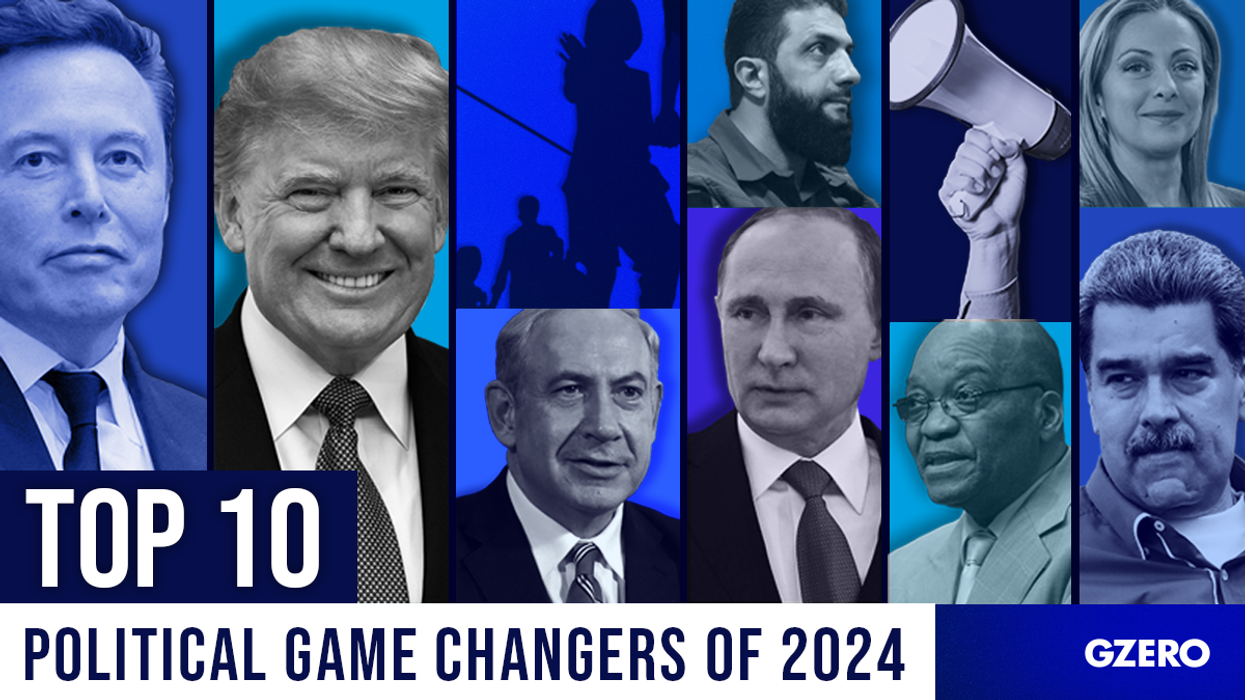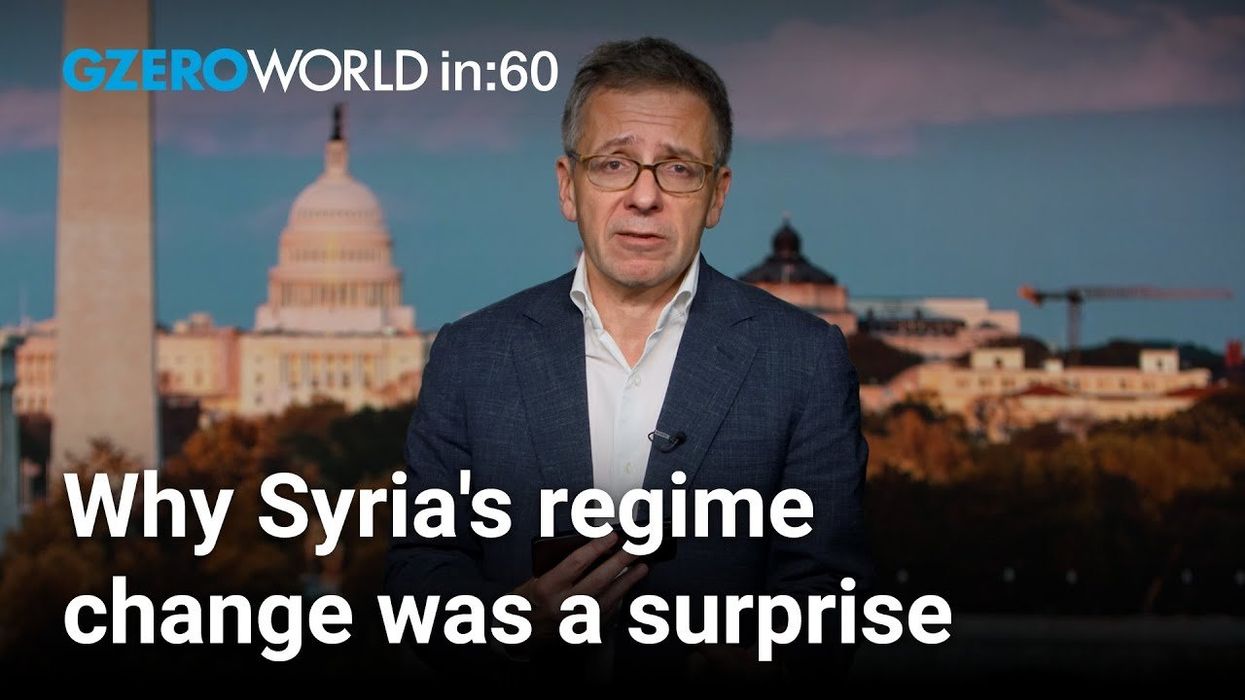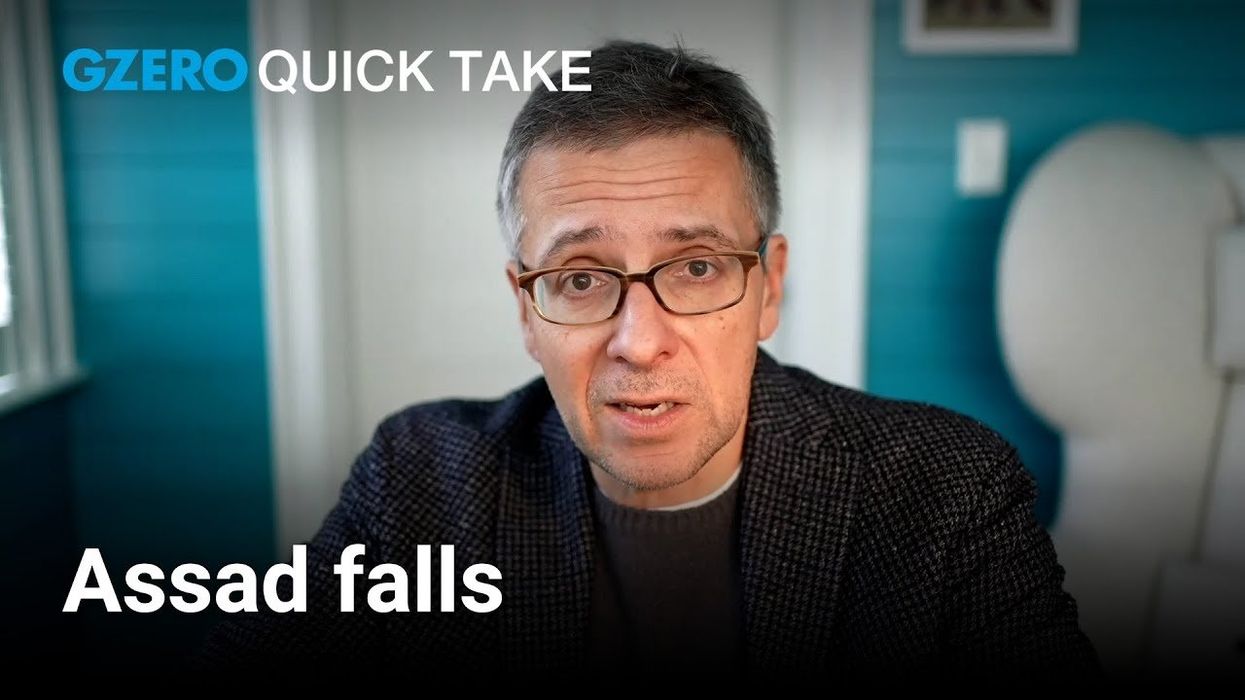ask ian
Ukraine kills top Russian general: What it means for the war
Ukraine assassinated a top Russian general on a Moscow sidewalk. Is this a significant or dangerous escalation? With the recent collapse of both France and Germany's governments what kind of turmoil does it create for the EU bloc? Why does Trump say Turkey "holds the key" to Syria's future? Ian Bremmer shares his insights on global politics this week on World In :60.
Dec 17, 2024
